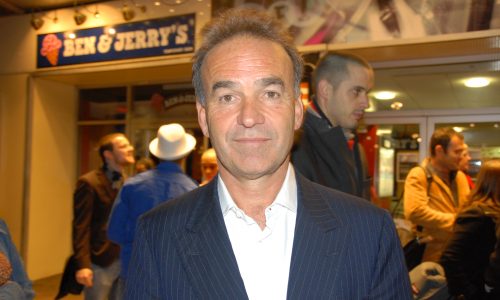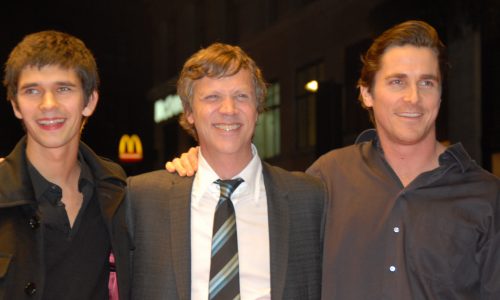The Times BFI 51st London Film Festival has drawn to a close in Leicester Square with a gala screening of the new Wes Anderson film, The Darjeeling Limted – a road-trip, featuring three estranged brothers, crossing India, to find their mother…and themselves. The festival began, more than two weeks earlier, with David Cronenberg’s London-set Russian-gangster-thriller, Eastern Promises. In all, the festival included 185 features and 133 features, from 43 countries – and in a large number of cases, directors, producers and cast-members attended their screenings – and held question-and-answer sessions for fans.
The programme included films that premiered in London and many which have previously been seen at other festivals – such as Cristian Mungiu’s Cannes Palme D’Or winning 4 Months, 3 Weeks and 2 Days. As such, the festival’s director has described the LFF as a festival of festivals.

The war against terrorism and bereavement are two of the recurring themes. Nick Broomfield’s latest narrative film, Battle For Haditha, is a no-nonsense take on the massacre of more than twenty innocent Iraqis that followed a fatal attack on US troops, during the latest conflict. Robert Redford’s Lions for Lambs tackles the consquences of the war in Afghanistan. Susanne Bier’s Things We Lost In The Fire examining how a woman (Halle Berry) comes to terms with the murder of her husband (David Duchovny) – and a personal project from John Cusack (as producer and star), Grace Is Gone, combined the themes with Cusack struggling with how to tell his daughters that their mother – a soldier – had died in Iraq.
This film cleverly eschewed the politics, but politics played a big part in other films, such as Michael Moore’s latest attack on America’s institutions – Sicko presents Britain’s NHS as a far superior health system to the medical insurance-based healthcare provided in the US.
The environment also features, with Sean Penn’s dramatisation of the true-life story of a young man who takes himself out of modern-day life and, as the title suggests, Into The Wild.
As well as dramatised real-life stories such as Penn and Broomfield’s films, there were of course a number of documentaries too – among them, Amir Bar Lev’s My Kid Could Paint. That was one of the most interesting, following the four year old art prodigy, Marla Olmstead.
Among the more upbeat films, Jason Reitman’s follow-up to Thank You For Smoking, Juno, was a sharp, bright and mature tale of a precocious teen who becomes pregnant and decides to have the baby adopted rather than aborted.

A number of stars made appearances in more than one film at the festival – Christian Bale, who was in the Vietnam prisoner-of-war film Rescue Dawn, and Charlotte Gainsbourg, from the French romantic comedy I Do, both featured in Todd Haynes’ film based on the various stages of Bob Dylan’s career, I’m Not There. Naomi Watts opened the festival in Eastern Promises and also turned up in Michael Haneke’s remake of his own Funny Games. Laura Linney also made two appearances – once at the screening of her latest sibling drama The Savages (this time partnered with Phillip Seymour Hoffman) and also for a separate talk on the prolific nature of her career.
As ever, the festival laid on a ‘surprise film’ on the second Sunday – fans who’d bought tickets and held their breath in anticipation were rewarded with a chance to see the new Coen Brothers film, No Country for Old Men.
The festival is not generally competitive, but there are a handful of awards handed out each year. Among the recipients this year, Joanna Hogg was the 10th FIPRESCI International Critics Award Winner for Unrelated and Sarah Gavron’s debut feature Brick Lane won her the Alfred Dunhill UK Film Talent Award – and the £15,000 that goes with it.
